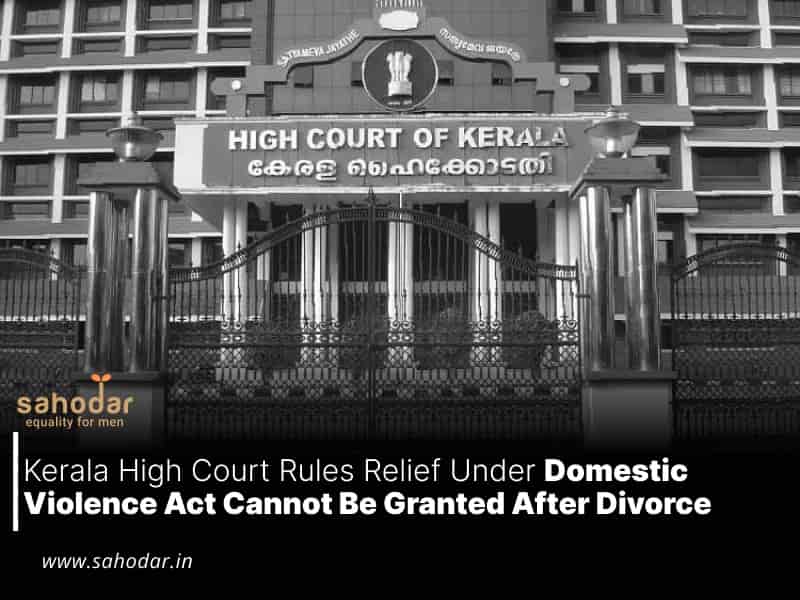The court ruled that a woman cannot request reinstatement or alternative accommodation under the Domestic Violence Act following a divorce.
The Kerala High Court has ruled that reliefs under the Protection of Women from Domestic Violence Act, 2005 (DV Act), particularly residence orders under Section 19, cannot be granted to a divorced woman after her marriage has been dissolved.
A single-judge bench led by Justice K. Babu clarified that a divorced woman is not entitled to claim residence rights under the DV Act after the dissolution of the marriage, as the “domestic relationship” required under the Act no longer exists.
The court made this observation while hearing a petition filed by the wife, who accused her husband and his relatives of domestic violence. The Magistrate had issued a residence order in favor of the petitioner based on prima facie evidence, finding the allegations credible despite the lack of medical records or independent witnesses. The Sessions Court upheld this decision.
The respondents appealed to the High Court, challenging the order. They argued that the marriage had been dissolved by a division bench of the High Court on April 8, 2014, making the wife ineligible for a residence order. Additionally, they contended that the Magistrate erred in granting the order based solely on prima facie satisfaction, which they argued was insufficient under Section 19 of the DV Act.
However, the petitioner argued that relief under the DV Act should not be restricted by subsequent events, such as divorce, since the Act is designed to protect women from abuse regardless of their marital status.
In evaluating the petitioner’s claims, the court emphasized that while prima facie evidence is adequate to issue interim protection orders under Section 18, stronger evidence is necessary under Section 19, though not to the extent of “beyond reasonable doubt.”
Citing the judgment in Ramachandra Warrior v. Jayasree (2021), the court held that a divorced woman can be considered an “aggrieved person” under the DV Act. However, residence rights under Section 19 are limited to shared households where the aggrieved woman continues to live during the marriage.
“In the present case, the petitioner is not residing in a shared household. The Court directed respondent No.1 to provide an alternative accommodation. Therefore, though she can be an ‘aggrieved person’ under the DV Act, she is not entitled to the benefit provided in this case after 08.04.2014,” the court stated.
Ruling that the petitioner’s residence rights ceased when the marriage was dissolved by a decree of divorce, the court held, “In the present case, admittedly as per judgment dated 08.04.2014…a Division Bench of this Court dissolved the marital tie between the parties. There are no special circumstances that prevent this Court from taking cognizance of the divorce effected in determining the rights of the parties. Therefore, I hold that the petitioner is not entitled to the benefit of the residence order under Section 19 of the DV Act after 08.04.2014.”
The court concluded that a woman cannot seek reinstatement into a shared household or request alternative accommodation under the DV Act after divorce. Consequently, it ruled that the petitioner was entitled to the residence order only until April 8, 2014

